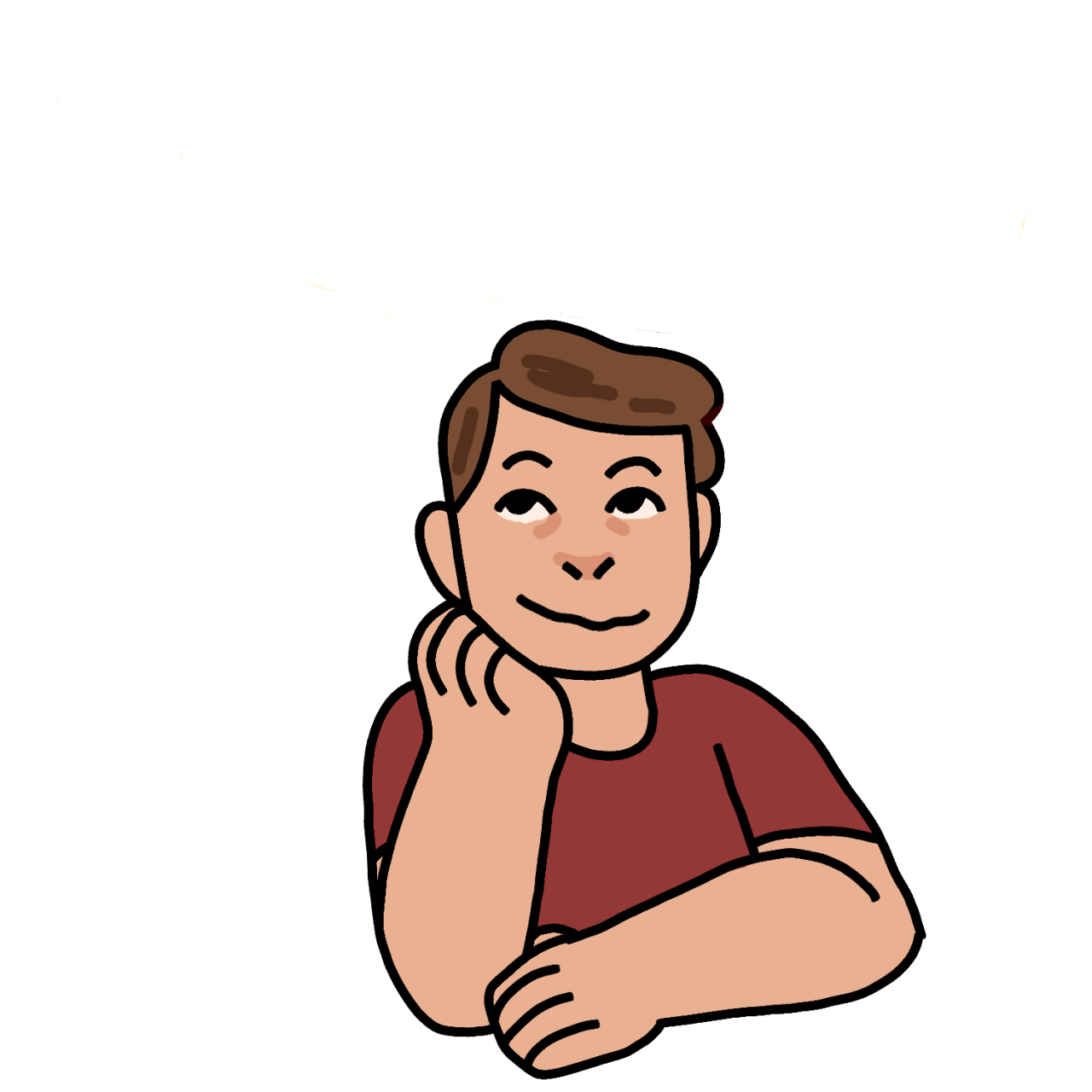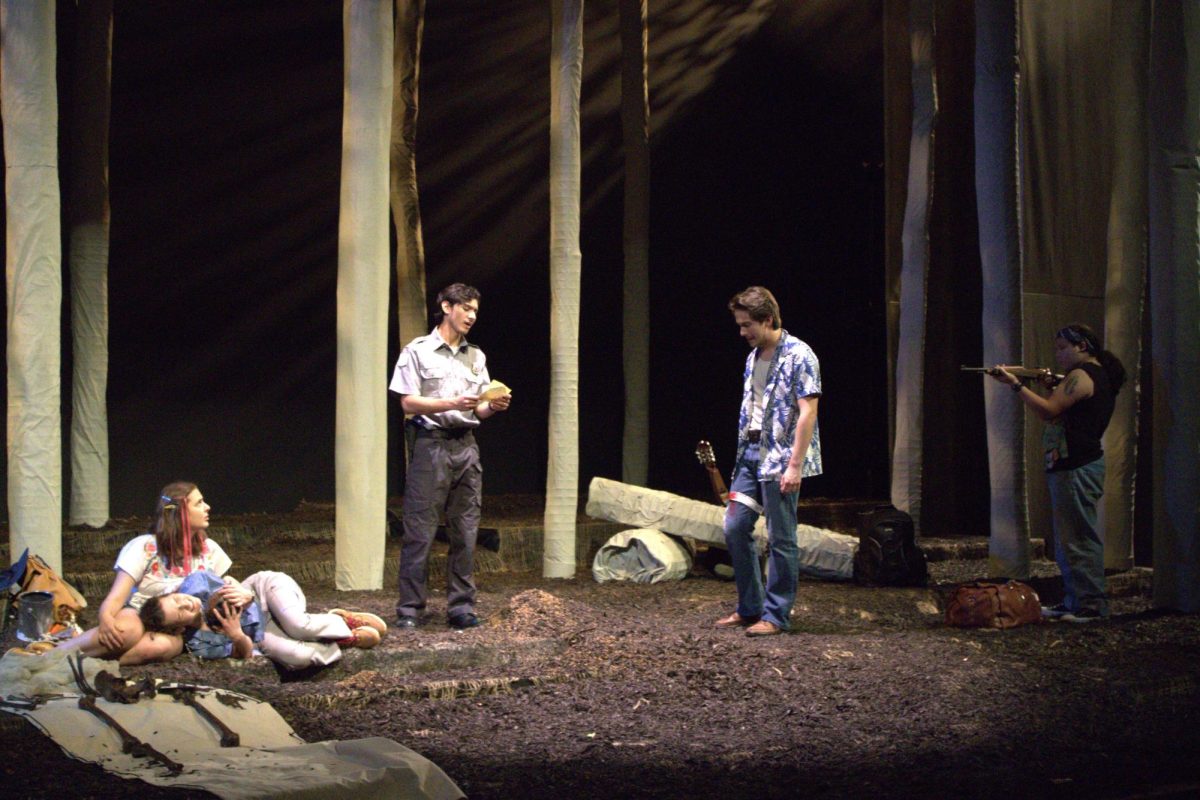Illustration by Ren Rader, guest contributor
Over the summer, when I wasn’t watching movies or eating far too much watermelon, I was reading as much as I could, something I hadn’t been doing as much as I wanted to this past year.
I was staying with my grandparents, so I had a collection of books and magazines available from every end of the literary spectrum.
There were books about the emergence of horses in the Americas to an entire shelf dedicated to the history of the Air Force.
Suffice to say, the resources available to me could help me broaden my range of knowledge outside of movies, sports and fantasy novels. And for a while, I did stray from my comfort zone.
Yet, I kept coming back to the books I still love the most: the books I read when I was a kid.
Throughout my childhood, I spent more time in the worlds of dragons, wizards and spaceships than I did in the world of apple juice, birthday parties and bad school pictures. Books meant more to me than any of those things. Instead of eating dirt and playing tag during recess, I was reading all the Dr. Seuss books I could get my hands on.
While “One Fish, Two Fish, Red Fish, Blue Fish” isn’t my favorite book now, it helped me get to the books that still are some of my favorites. These include “Harry Potter,” “The Hobbit” and “All the Pretty Horses” books that have stayed in my imagination for over a decade.
In many ways, I believe those books had a greater impact on me than any video game or toy my parents bought me.
When I read those books now, not only am I reentering a world I’ve already traveled through, I am stepping back into the shoes of a young boy, full of dreams of living in volcanoes and raising Pokémon.
That, to me, is the incredible thing about books from my childhood and why I find myself turning to them again and again.
They grant me access to a time in my life that I don’t completely remember. Books like “The Return of the King” and “Skullduggery Pleasant” illuminate my childhood, bringing me back to the simple days of going to the park with my dad and reading.
This isn’t all to say that “War and Peace” pales in comparison to “Fablehaven: Rise of the Shadow Plague.” One is a beautiful story of bravery, friendship, growing up, and the other is “War and Peace.” While “War and Peace” may hold a more revered place in the literary canon, that doesn’t detract from the memories held in the pages of “Fablehaven: Rise of the Shadow Plague.”
The best thing, in my opinion, about books is the individual effect they have on the reader and the memories housed in that book once it is picked up again.
Other forms of art like film or painting or sculpture may have this effect on people, but for me, it is most present in books. Books are the best workout for our technology–flooded minds.
They provide refuge from the worries of existence or shed light on a topic that was once misunderstood. Now more than ever, it seems that books and reading are needed. Yet, it seems like people are losing their desire to read and write.
On average, Americans are reading less than they ever have and spending more time glued to their phones. Phones don’t have the same beneficial side effects that books do. Recent studies show that overuse of phones can lead to depression, anxiety and create an aversion to human interaction that isn’t supplemented by a device.
It should be said some studies also point to social media as another contributor to this issue, though it’s all still rooted in an attachment to a screen.
The perfect cure to the grip of technology, in my humble English major opinion, is for people to read. Find a book you loved or would love to try and put away your phone.
Books can be anything you want them to be. An escape from a bad day, a window into a world you knew nothing about or a way to stroll down memory lane and gain new perspectives. Whatever one needs, books can be that.
When I was rereading “Fablehaven,” one of my favorite books to this day, I couldn’t help but think about how little I knew back when I first read it and how I really only know a little bit more now. But without “Fablehaven,” I may not have gotten to the place I am today.
If you take anything from this, it should be to put down you phone, close your computer and read. Who knows, you might even learn to like it.







